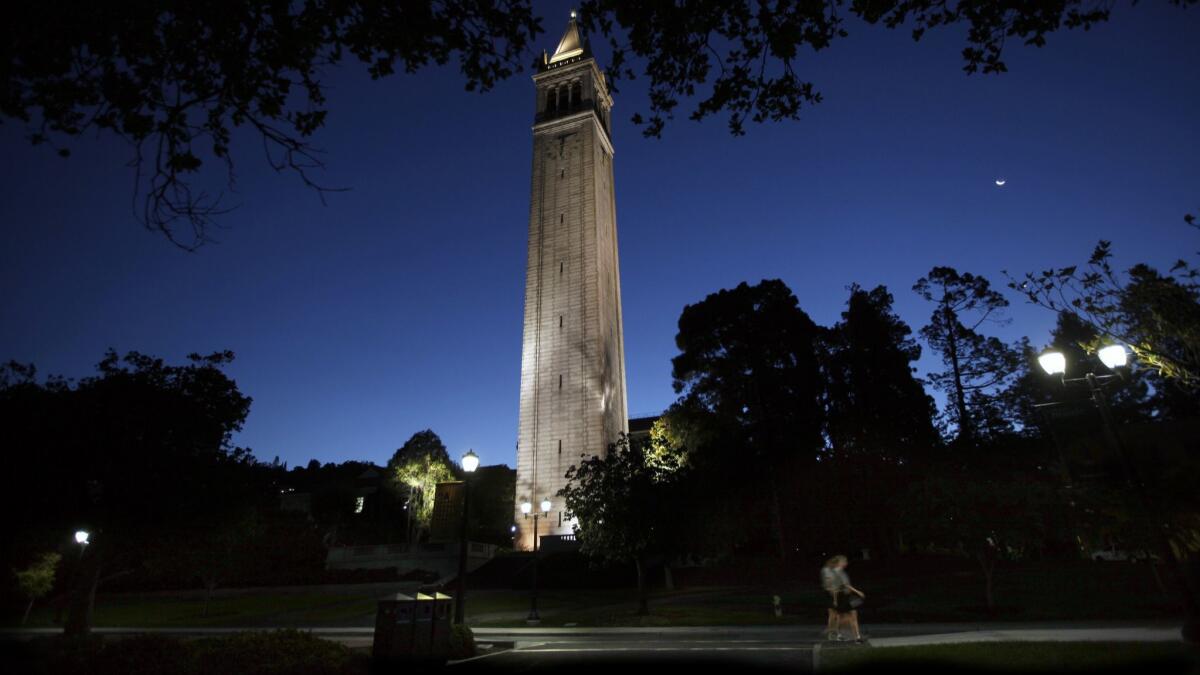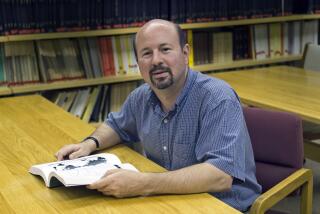Op-Ed: Scientists have #MeToo issues too. Don’t exempt them from accountability laws

Before it had a hashtag, the #MeToo movement had already hit science. Geoff Marcy, one of the first astronomers to have spotted a planet outside our solar system, resigned from UC Berkeley in 2015 after he was accused of sexually harassing graduate students. In the years that followed, astronomers at Caltech and Arizona State; a molecular biologist at the University of Washington and another who’d worked at the University of North Carolina and the University of Chicago; a paleoanthropologist at the American Museum of Natural History; a geologist from Boston University — the list goes on — all resigned or were fired because of alleged sexual misconduct.
It’s worth noting that many of the universities and other scientific organizations where high-profile cases were exposed are public, taxpayer-funded institutions. That’s not to suggest that private university scientists are less predatory, but at public institutions, researchers are held to account by freedom-of-information laws that allow journalists to compel scientists and their institutions to turn over emails and other records. Because private institutions are not subject to state or federal records laws, it can be much harder to prove cases of sexual harassment.
California’s Public Records Act is one such freedom-of-information law that allows journalists to keep an eye on taxpayer-funded scientists. And not just in cases of harassment. The New York Times used freedom-of-information requests to expose how Monsanto and organic-food firms “transformed ivory tower elites into powerful players” who pushed industry-backed initiatives. In Scientific American, I used them to show how medical researchers and their institutions weren’t disclosing their ties to pharmaceutical companies as legally required. And in Slate and the peer-reviewed JAMA Internal Medicine, I used them to expose research misconduct, including fraud, in medical studies. Freedom-of-information laws reveal correspondence and other documents that shine a light into shadowy corners of science that would otherwise remain dark.
For every instance in which freedom-of-information requests are abused, there are many more in which they help expose researchers behaving badly.
Yet the California Assembly is considering a bill that would take that tool away. Assembly Bill 700, which faces a judiciary committee vote on Tuesday, would exempt scientists’ correspondence and certain other information from disclosure under the Public Records Act. AB 700 is the culmination of a multiyear effort by scientists’ organizations and industry groups to cast freedom-of-information requests for correspondence as “bullying” and, ironically, “harassing” researchers.
Transparency can, indeed, be used as a weapon by bullies. One of the most powerful forms of online harassment is “doxing” — the public posting of personal information. Freedom-of-information requests — because the laws require a timely response — can also suck a researcher’s valuable time away from doing science. Worse yet, some worry that competitors could use the California Public Records Act to steal valuable scientific secrets.
But these arguments fall apart under closer inspection. There are very few examples of freedom-of-information requests being used to harass scientists, and even when it has happened, the laws give scientists a great deal of protection. Trade secrets are already exempt from most such laws (California’s included), as are materials that constitute an unwarranted invasion of the scientist’s privacy, and much draft material. Those protections work.
Enter the Fray: First takes on the news of the minute from L.A. Times Opinion »
Advocates of changing the California Public Records Act often cite the case of climate scientist Michael Mann, who was subjected to nasty record requests from his time at the University of Virginia. But they don’t typically mention that Mann won in the courts, first against the Virginia attorney general (who was making a legal demand, not a freedom-of-information request) and then against partisans who tried to get those same documents through freedom-of-information laws. The courts backed him, and Mann didn’t have to release the requested information. Mann did suffer, but the laws ultimately protected him as designed.
For every instance in which freedom-of-information requests are abused, there are many more in which they help expose researchers behaving badly. The changes proposed to the state Public Records Act to shield researchers would hamstring watchdogs, as the American Civil Liberties Union and the California News Publishers Assn. have argued.
At the end of February, the National Institutes of Health — itself suffering from #MeToo issues — declared that sexual harassment is “a major obstacle that is keeping women from achieving their rightful place in science” and suggested that embracing “an ethos of transparency and accountability” is crucial to fixing the problem.
As the #MeToo movement in academia has shown, scientists are human, and so they are flawed. Some cheat. Some steal. Some abuse the power of their positions and break the rules that are supposed to keep them in check. Exempting California’s taxpayer-funded scientists from the very laws that hold them accountable would be movement in the wrong direction.
Charles Seife is professor of science, health and environmental journalism at New York University. He was previously a writer for Science magazine and a correspondent for New Scientist.
Follow the Opinion section on Twitter @latimesopinionand Facebook
More to Read
A cure for the common opinion
Get thought-provoking perspectives with our weekly newsletter.
You may occasionally receive promotional content from the Los Angeles Times.






